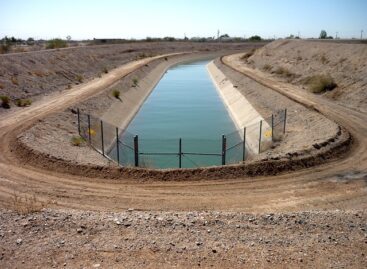The financial balance improves, but the GDP stagnates in 2009
The forecast prepared by GKI Economic Research Co. in co-operation with Erste Bank shows that in the radically changed global economic environment the Hungarian economy takes a completely new path as well.
The main characteristic
of this new path is that both the internal and external balances
improve much faster than previously planned but at the same time the
economy practically stagnates, the unemployment grows, the inflation
and the number of people employed decreases. The improvement of the
financial balance of the economy is due to several factors: the
increase in the net savings of households; the fact that the
increment in the investments of the private sector will be less than
the increment of the EU transfers; but in 2009 the most important
factor will be the reduction of the general government deficit to
approximately 2.5% of GDP.
In the coming months and in 2009 the
external and internal demand will grow very slowly or will not grow
at all. While the global panic in the money and capital markets may
abate even before the end of the year, the access to credits becomes
more difficult, the growth prospects are gloomy. After the last
year’s 1.1% the growth of the economy accelerates to about 2% in
2008, but will decrease again to approximately 0.5% in 2009. The
stagnation or recession in the EU reduces the export opportunity for
the Hungarian economy. The foreign trade turnover slows down
drastically, but the volume of exports continues to expand faster
than that of the imports. Among the export driven branches of the
industry major problems are expected in the production of motor
vehicles – since this branch is very sensitive to deterioration of
credit conditions. In this branch there are big differences in the
position of various producers. Less problems are expected in the
electronics industry, which is strongly influenced by the fast change
of fashion.
The uncertain perspectives and the expensive credit
hinder the investment activities. The EU transfers will be enough
only to replace government contribution. Housing construction will
decline. Consumer demand will be limited, because real wages will
grow modestly this year and will decrease next year approximately to
same extent. Borrowing possibilities are limited, while the amounts
needed for the amortization of loans borrowed earlier is growing. The
high interest rates and the increasing uncertainty strengthens the
propensity to save: especially savings in highly liquid assets: e.g.
short term bank deposits and government papers.
Inflation will
decline fast in the last months of 2008 and at the beginning of 2009
– mainly due to drop in global energy and agricultural prices but
also because of the high basis. In 2008 an annual average 6.2%
inflation is expected (5% at the end of the year); in 2009 the annual
average will be around 3.9% (3.5% at the end of the year). Because of
the uncertainty in the international money market the exchange rate
of the forint will be volatile but with a tendency of strengthening.
At the end of the year the euro exchange rate will be below 260
forints and in 2009 the annual average expected around 250
forints.
If the international money market stabilizes and the
Hungarian general government deficit will continue to decrease from
this year’s 3.4%, then the excessive deficit procedure against
Hungary will come to an end in the spring 2009. As the inflation
decreases below 4% Hungary will come close to the criteria of the
entry into the euro-zone. Thus, Hungary may enter the ERM-2 system in
the near future. After the approval of the new fiscal rules and of
the 2009 budget, the government may announce the date of introduction
of the euro – most probably 2012. This would strengthen the
confidence in the Hungarian economy and the forint.
Related news
Related news
Irrigation water resources equivalent to one-third of Lake Balaton are available
Despite the extraordinary drought and lack of precipitation, we can…
Read more >Free irrigation water provided to farmers is a key element in the fight against drought
Free irrigation water provided to farmers is a key element…
Read more >Corporate leaders’ commitment to sustainability at record level
According to the latest data from the K&H Sustainability Index,…
Read more >



